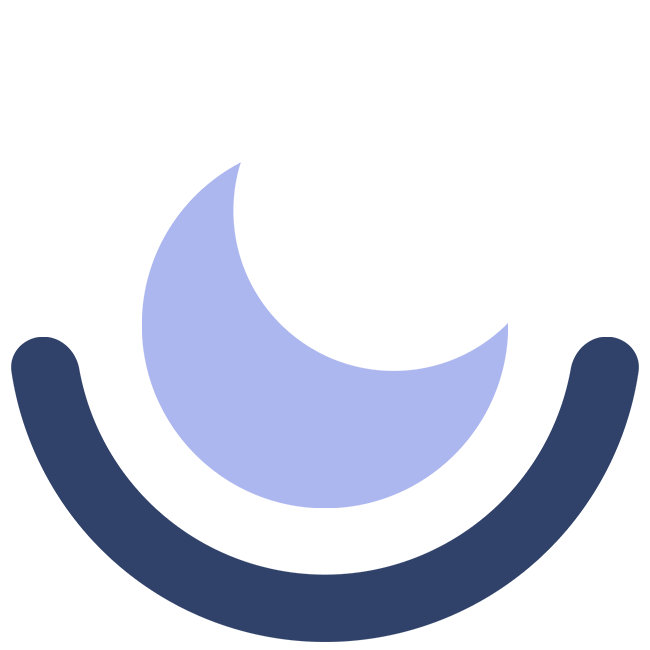Catathrenia is a rare disorder that involves moaning or groaning during sleep. While It’s common for people to make sounds or say short phrases after falling asleep, moaning is accompanied by changes in breathing for people with catathrenia. Catathrenia can be disturbing to people who witness the condition, like bed partners or caregivers.
Although catathrenia may cause alarm, it is not considered to be dangerous or harmful to the sleeper. Additionally, treatments are available that may reduce a person’s symptoms.
What Are Symptoms of Catathrenia?
The primary symptom of catathrenia is repetitive moaning during sleep accompanied by long exhalations. After falling asleep, people experiencing catathrenia will take a deep breath in, then produce a long and low-pitched moan as they breathe out.
These sounds during sleep can be loud, reaching up to 75 decibels, which is the approximate volume of a vacuum cleaner. Sounds may be perceived by bed partners as unhappy or sexual, potentially causing embarrassment for the person with catathrenia.
Catathrenia is different from snoring. When a person snores, sound is created by vibrating or flapping of tissues as air passes through the mouth, throat, and nose. In catathrenia, the sound made as a person exhales is produced by the vocal cords.
Rather than happening consistently throughout the night, catathrenia tends to occur in sporadic episodes. For many people with catathrenia, an episode may involve several moans and long exhalations, before they return to normal breathing. People may experience multiple episodes during a single night of sleep.
Catathrenia is a rare condition, making it difficult for researchers to understand other symptoms that may be associated with the disorder. One study found that a sizable portion of people with catathrenia report daytime sleepiness. Moaning during sleep can also contribute to social problems for people with catathrenia.
What Causes Catathrenia?
Because catathrenia is so uncommon, doctors don’t know exactly what causes this condition. It can occur in both adults and children, and appears to be more common in people assigned male at birth.
While it used to be considered a type of parasomnia, which are disorders like sleepwalking that cause people to act in unusual ways during sleep, catathrenia is now classified as a sleep-related breathing disorder.
Sometimes, catathrenia may occur as a side effect of drugs given for narcolepsy.
It is not associated with any mental health conditions, abnormal movements during sleep, or sleep talking.
How Catathrenia Is Diagnosed
Catathrenia may be suspected when bed partners, family members, or caregivers observe someone moaning during sleep. A sleep study, also called polysomnography, can confirm the diagnosis of catathrenia and rule out other sleep problems like sleep apnea or a parasomnia.
Audio recordings are helpful when doctors are making a diagnosis, since catathrenia is characterized by audible moaning.
Home sleep apnea tests, in which a sleep study is conducted in a person’s home, are prone to misdiagnosing catathrenia as central sleep apnea. For this reason, experts emphasize that a review of audio recordings in combination with sleep apnea testing is necessary to correctly diagnose catathrenia.
Can Catathrenia Be Treated?
Because it is rare, more remains to be learned about the optimal treatment of catathrenia. Although not all experts agree that the disorder needs to be treated, some people with catathrenia have benefited from treatment.
Treatment options include:
- CPAP: Continuous positive airway pressure (CPAP) involves the use of a device that delivers pressurized air into the airway during sleep. CPAP has been shown in studies to resolve the symptoms of catathrenia.
- Oral appliances: Dental devices and other oral appliances, including mandibular advancement devices, have been shown to reduce catathrenia symptoms, especially in younger people with catathrenia.
- Medication: Although medications that promote sleep have been used, their effectiveness has not been definitely proven.
- Surgery: Various surgeries to alter structures in the mouth, nose and throat have been performed to treat catathrenia. Experts do not agree on whether or not surgery is an effective treatment.
How Your Partner Can Sleep Better
Catathrenia is often a greater problem for bed partners than for those who have the disorder itself, due to the volume and disturbing nature of nighttime sounds. In addition to working with a doctor to discuss treatments, there are a number of steps bed partners can take to block out the bothersome noises caused by catathrenia.
- Earplugs or headphones: Using earplugs or headphones to block out noise may improve a bed partner’s sleep quality.
- White noise machine: Creating white noise through the use of a bedside white noise machine, smartphone app, or fan may reduce the effects of nighttime moaning.
- Practice good sleep hygiene: For anyone hoping to get better sleep, practicing good sleep hygiene is a helpful place to start. Taking steps such as developing a habitual nighttime routine with a consistent bedtime can often improve a person’s sleep.
References
Ask the Sleep Doctor
Have questions about sleep? Submit them here! We use your questions to help us decide topics for articles, videos, and newsletters. We try to answer as many questions as possible. You can also send us an email. Please note, we cannot provide specific medical advice, and always recommend you contact your doctor for any medical matters.


